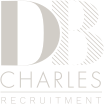Did you know that 85% of HR decision-makers admit to making a bad hire?
You might think that hiring the wrong person is more of an inconvenience than a serious drain on your business. While in their probationary period new employees are easier to let go, which can mean that a bad fit might not feel like the end of the world. However, the cost of making the “wrong hire” is far higher than you might think…
The costs incurred by hiring an unsuitable candidate go far beyond the cost of their recruitment and the time and energy put into the onboarding process. Although you may be impressed by an individual in the interview room, if they’re a bad fit, they could significantly reduce productivity across your business, prove a drain on morale company-wide and incur substantial recruitment and HR costs too.
To help you approach the hiring process with open eyes – and to help you avoid the two in five new hires which turn out to be bad – we’ve delved deeper into the true cost of making the wrong hire…
- Increased Recruitment Costs
Taking on a new member of staff comes with a list of costs which will, effectively, be destined for the drain if the hire proves to be unsuccessful. From the cost of listing vacancies on recruitment sites, to recruitment agency fees and staff hours spent reading CVs and conducting interviews, hiring new team members is a significant investment. If the investment proves to be bad, you’ll need to spend double on replacing your bad hire.
- Increased Onboarding Costs
It’s not just the recruitment process which costs businesses money. Settling a new hire into their new role can also prove costly. HR hours spent on paperwork, training costs and other onboarding processes can add up to more than you might expect. Again, these costs will be doubled if you’re forced to find a replacement candidate.
- A Drain on Productivity
There are many ways in which the wrong candidate can be a major drain on productivity. Of course, every new team member will require some time and training to get up to full speed, but a bad hire could mean you’re saddled with a candidate who takes far longer to become competent at essential, pressing tasks. This can hold up processes company-wide and even absorb the time of other staff as they attempt to help train the new candidate or step in to pick up the slack. This can impact productivity across your business, reducing profitability.
- Reduced Morale Team-Wide
We all know how demotivating it can be to be stuck in the workplace with someone who doesn’t want to be there. When bad hires prove to be negative influences in this way, their attitude can take its toll on other members of your team, impacting the quality of their work as well as their productivity. In cases where a new employee is simply ineffective rather than negative, other team members may feel demotivated thanks to their new colleague’s incompetence, especially if they have the same job description or are being paid a similar wage.
The Real Price of a Bad Hire
So what do all of these costs add up to in real terms?
According to Zappos CEO Tony Hsieh, hiring the wrong candidates had cost his large enterprise “well over $100 million”. The U.S. Department of Labor, meanwhile, place the price of a bad hire at 30% of the new staff member’s first-year earnings. In British terms, that puts the cost of hiring a bad junior candidate at around £7,000, with bad hires at management level and above costing significantly more.
How to Avoid Bad Hires
Unfortunately, bad hires do happen. Without psychic powers it’s almost impossible to completely protect yourself against this problem. However, with a smart approach, expert advice and guidance, and a dose of intuition, you can significantly reduce the likelihood of hiring the wrong candidate. Here are a few tips to keep in mind…
- Hire a Recruitment Consultant
Most recruiters want to “sell” you their candidate, earn their commission and run for the hills. A true recruitment “consultant”, however, will want to help you nurture and grow your dream team. Work with an expert in this field to reduce bad hires.
- Interview Properly
If you’re the CEO or founder of your business, you may be a great talker but less great at listening. Asking the right questions and really listening to responses will help you determine whether a candidate has the right skills and will be the right fit. If this isn’t your strong suit, make sure you bring someone else into the interview room with you.
- Always Check References
Checking references can take time, but is always worthwhile if it helps you avoid hiring unqualified, untruthful candidates.
Please get in touch with DB Charles, the recruitment specialists, today for more tips and techniques to help you reduce the chances of making a bad hire, or browse the website to learn how our recruitment consultancy services can make your HR framework more efficient.












